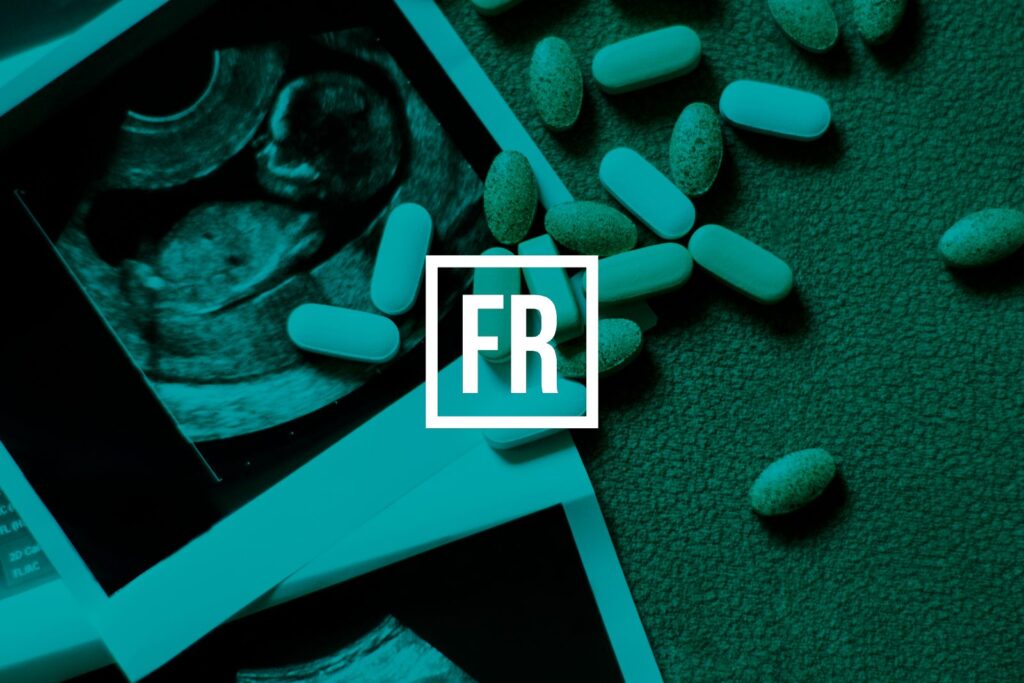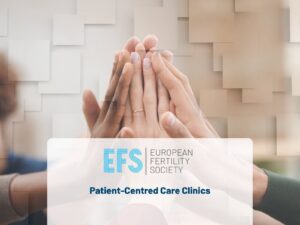The 3-12 months prior to falling pregnant is considered the preconception period. This is the ideal time to start considering your nutrient status and nutrient intake, as the nutrients in your diet affects the developing egg and sperm cells, which both take around 90 days to mature. Studies show that inadequate nutrition and nutrient deficiencies in the preconception period can increase the time to conception, and it also impacts the pregnancy. For example the development of the placenta, blood supply to the growing baby, as well as spinal cord and brain development of the growing baby are all impacted by what both partners eat in the months running up to conception.
There is no doubt that nutrition is important when it comes to fertility, however, there are many myths out there on this subject, so let’s take a closer look at some of these.
Myth No. 1: In order to improve my fertility I just have to take a good fertility multivitamin
The number one question we get asked as fertility nutritionists are: what supplements should I take to support my fertility? This is a very important question, and if only there was such a thing as a magic pill. The truth is that your overall diet is much more important than any pill. There is so much more to nutrition than individual nutrients, and there is enormous variation between the different supplement brands.
The most important thing is to aim to get as much of your nutrition as possible from real food. There are many reasons for this. Mother nature has ensured that the food we eat contains synergistic nutrients; this means that they work together in unison to promote health. Food also contains not only vitamins and minerals, but also other beneficial plant compounds such as polyphenols and fibre, which helps keep us regular, supports a healthy gut microbiome, a healthy hormone balance as well as lowering levels of inflammation – all of which is important for your fertility. Individual nutrients taken in pill form can’t replicate what is found in nature.
Having said that, the lifestyles we live – the increased stress and pollution we are subjected to, for example, does increase our requirements for certain nutrients. At the same time, our soils are becoming depleted and don’t contain as many nutrients as they used to, for example the food content of magnesium has declined significantly over the last 50-100 years. Women of reproductive age have been consistently shown to not meet their requirements for folate, iodine, iron, Vitamin D and omega 3 fats – all essential nutrients for a healthy conception.
For these reasons, it is recommended that you do consider supplementing your diet, in order to fill any gaps, however this should not be seen as a replacement for a good diet. It is always important to consult a fertility nutritionist before embarking on a supplement regime, to ensure it is tailored to your needs as well as being both safe and effective.
Myth No. 2: Your general health has nothing to do with your fertility
One of the biggest factors when it comes to fertility is your overall health. The truth is that if it affects your overall health, it affects your fertility. For example, it is well known that alcohol, smoking, over- or under exercising, a lack of sleep, being over- or underweight, eating too much processed food, not eating enough vegetables and so on affects our overall health and wellbeing. These are also some of the main culprits for unbalanced hormones as well as reduced fertility in both sexes. We know, for example, that a diagnosis of male factor infertility is associated in some men with future health problems such as cardiovascular disease. It’s highly likely that seemingly unconnected digestive issues such as bloating and reflux, occasional symptoms of thrush or frequent urinary tract infections all have a direct impact on fertile health.
The good news is that by making small changes to your diet and lifestyle over time, you can make a big impact on your overall as well as fertile health. The positive signs to look out for are things like improved energy, better moods, clearer skin, better sleep, improved PMS, less aches and pains, reduced dark circles under the eyes. If your overall health is improving, chances are that this is also having a positive impact on your fertile health.
Myth No. 3: In order to improve your fertility, you need to go on a fertility detox
Optimal fertility is not achieved by overly restricting, dieting or otherwise depriving yourself of the foods you like. Restrictive diets can have a negative impact on your gut microbiome, hormone balance as well as add to your stress levels. In fact, a fertility nutritionist would be more likely to add foods to your diet rather than take something out.
Diet restriction can also lead to rapid weight loss, which is not recommended prior to trying to conceive. This is because potentially harmful toxins tend to be kept safely stored away in our adipose tissue, and if these toxic compounds are released into the blood stream in large quantities, this can overwhelm our detox capacity and have a negative impact on the developing egg and sperm. If you have been told that you do need to lose weight, it is much better to aim for slow, sustainable changes.
Sometimes it does become necessary to remove a specific food from the diet, but this should only be done on recommendation and under supervision by a trained fertility nutritionist, who can make sure that you are not putting your health and wellbeing at risk, as well as help support you to find alternatives to avoid feelings of deprivation or increased stress.
Myth No. 4: If I am having IVF, I don’t need to consider my diet and lifestyle
IVF and other assisted reproductive technologies can be a lifeline for people with fertility problems. However, it is always a good idea to consider addressing nutrition and lifestyle factors prior to treatment, even if you have been told that you need medical treatment to help conceive.
The building blocks for the egg and sperm comes from the food that you eat, this cannot be replaced or enhanced inside a lab. Therefore, adequate nutrition before and during treatment helps improve both egg and sperm health, in order to further increase the chances of successful fertilisation. Nutritional strategies can also help improve the health of the endometrium, placenta as well as the overall health of both mum and baby throughout pregnancy and beyond.
Myth No. 5: I don’t need to consult a fertility nutritionist because I already eat a good diet
The truth is that even with the best diet in the world, you may still end up with nutrient deficiencies for various reasons. Our lifestyles, everything we are exposed to in our environment, stress levels as well as digestive function impacts our nutrient stores. You could be eating the perfect diet, but if your digestion is impaired by stress or other factors, or you are exposed to high levels of oxidative stress through lifestyle factors such as over-exercising or toxins via your work, you may not be able to absorb the nutrients from the food that you eat, or you may simply be using them up faster than you can replace them. A fertility nutritionist will start by assessing your diet and look for potential gaps in your micro-or macro-nutrient intake. But it doesn’t stop there. The next step is to consider any signs and symptoms of nutrient deficiencies, and ideally also run a blood test to assess your current levels of nutrients such as B12, folate, vitamin D and iron stores to name a few. This way, a diet and supplement plan can be tailored specifically to your needs, in order to plug any gaps as quickly and efficiently as possible.
Your fertility nutritionist will also take a holistic approach and assess your dietary function, gut health, thyroid health, menstrual cycle, vaginal microbiome, oral health and reproductive hormones – all of which can be modulated with a targeted approach to diet and lifestyle in order to optimise your fertility.
Myth No. 6: Pineapple core helps implantation
There’s a widespread myth that eating the woody part of the pineapple – the core – can help support implantation, and much of this may be attributed to the nutrient Bromelain, which is contained within. Bromelain is an enzyme, which has mild anti-inflammatory and blood-thinning properties. This enzyme also helps break down proteins, and therefore can help improve digestion and absorption of the nutrient in protein rich foods.
Unfortunately, there are no studies to support the theory behind eating pineapple core to improve implantation. Pineapple core is also not particularly pleasant to eat. In addition, it’s not advised to eat high levels of bromelain-containing foods if you are already on a blood thinning medication. If you enjoy eating pineapple, go ahead and consume it in moderation. It is unlikely to improve implantation but it might help improve your digestion and absorption if eaten alongside a healthy meal.
It’s likely that you will come across many tips and ideas about how to improve your diet and fertility naturally, both from well-meaning friends and family members as well as online from various influencers or support groups. However, if you are looking to improve your fertility diet, a consultation with a fertility nutritionist is invaluable for personalised advice which is also evidence-based, safe and effective.






